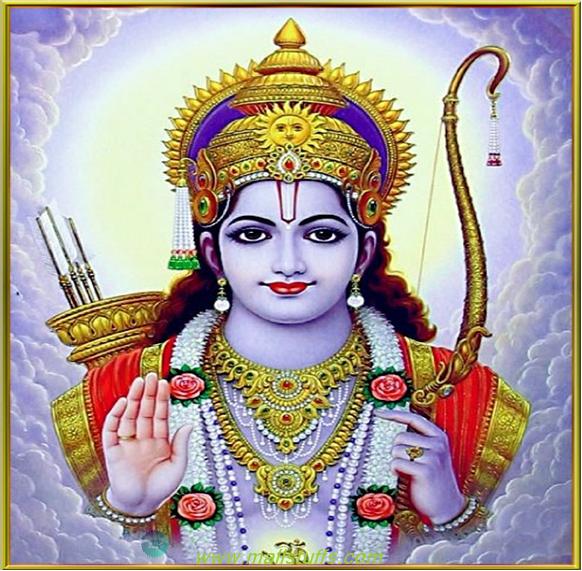Sage Vasistha says: In this world whatever is gained is gained by self effort; where failure is encountered it is seen that there has been slackness of effort. This is obvious; but what is called fate is fictitious and is not seen.
Self-effort, Rama, is that mental, verbal and physical action which is in accordance with the instructions of a holy person well versed in scriptures. It is only by such effort that Indra became king of heaven, that Brahma became the creator, and the other deities earned their place.
Self-effort is of two categories: that of past births and that of this birth. The latter effectively counters the former. Fate is none other than self-effort of a past incarnation. There is constant conflict between these two and that which is more powerful triumphs.
Self-effort which is not in accord with the scriptures is motivated by delusion. When there is obstruction in the fruition of self-effort one should examine to see if there is such deluded action, and if there is, it should be immediately corrected. There is no power greater than right action in the present. Hence, one should take recourse to self-effort, grinding one’s teeth, and one should overcome evil by good and fate by present effort.
The lazy man is worse than a donkey. One should never yield to laziness but strive to attain liberation, seeing that life is ebbing away every moment. One should not revel in the filth known as sense pleasures as a worm revels in pus.
One who says “Fate is directing me to do this” is brainless and the goddess of fortune abandons him. Hence by self-effort acquire wisdom and know that this self-effort leads to realization of the truth.
If this dreadful source of evil named laziness is not found on earth, who will ever be illiterate and poor? It is because of laziness that people live the life of animals, miserable and poverty stricken.
As is the effort so is the fruit, O Rama: this is the meaning of self-effort, and it is also known as fate (divine). When afflicted by suffering people cry “Alas, what tragedy” or “Alas, look at my fate”, both of which mean the same thing. What is called fate or divine will is nothing other than the action of the past. The present is infinitely more potent than the past. They indeed are fools who are satisfied with the fruits of their past effort (which they regard as divine will) and do not engage themselves in self-effort now.
If you see the present self-effort is sometimes thwarted by fate (or divine will), you should understand that the present self-effort is weak. A weak and dull-witted man sees the hand of providence when he is confronted by a strong and powerful adversary and succumbs to him.
Self effort is based on these three – knowledge of scriptures, instructions of the preceptor and one’s own effort. Fate (or divine dispensation) does not enter here. Hence, he who desires salvation should divert the impure mind to pure endeavor by persistent effort – this is the very essence of all scriptures.
Fate or divine dispensation is merely a convention which has come to be regarded as truth by being repeatedly declared to be true. If this god or fate is truly the ordainer of everything in this world, of what meaning is any action at all?
Excerpted from ‘The Supreme Yoga’, a translation of Yoga Vasistha by Swami Venkatesananda. Ram Navami is being celebrated on April 14







